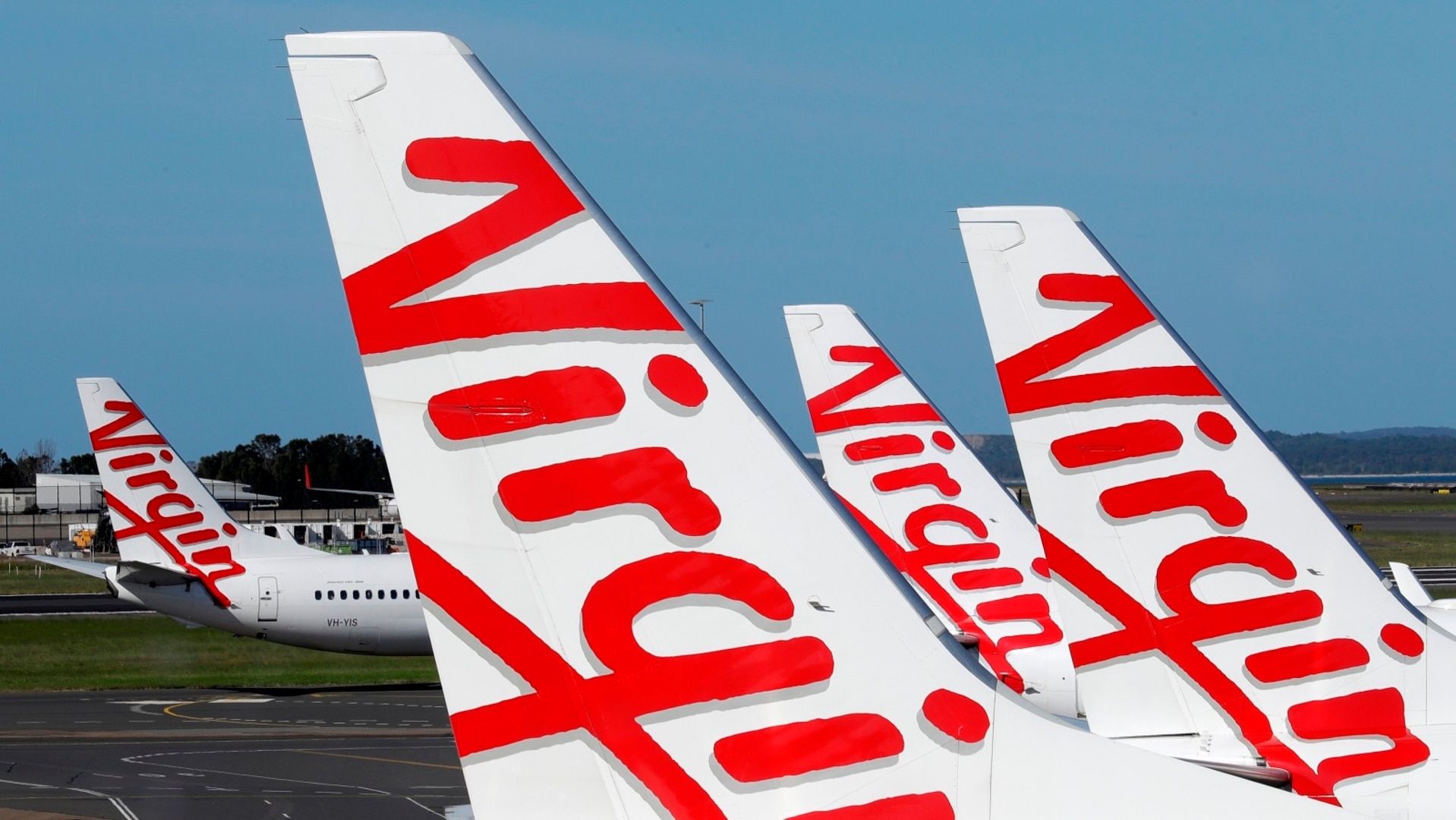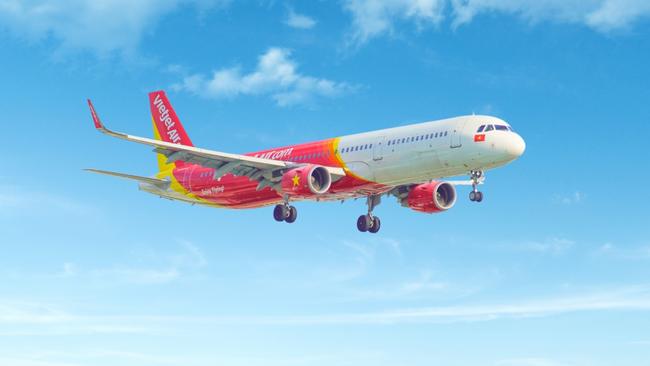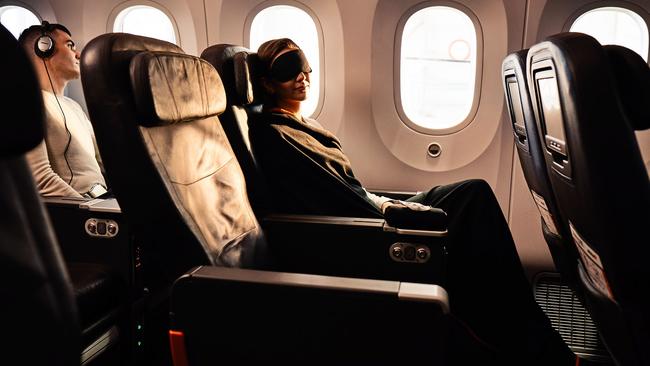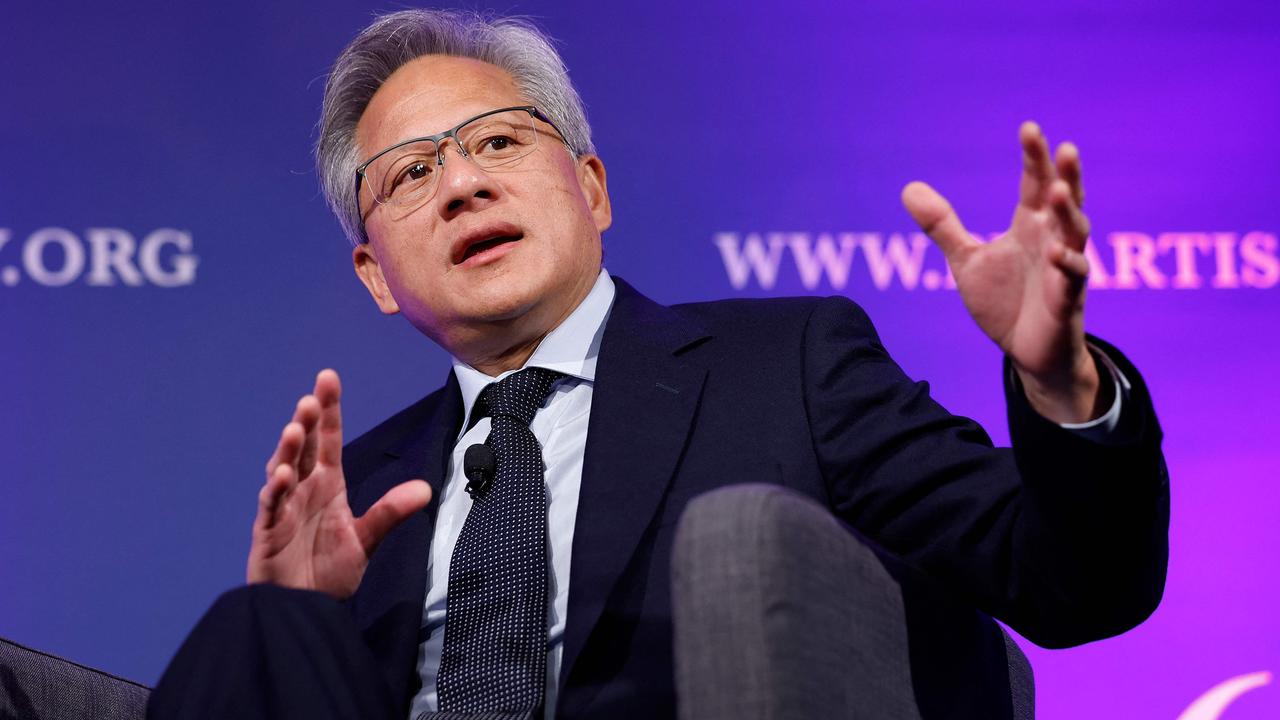Budget airlines are on the rise on international routes with Qantas partner Jetstar leading way
Flying a low-cost carrier overseas may not be considered glamorous, but it is increasingly popular with budget-conscious travellers.

Business
Don't miss out on the headlines from Business. Followed categories will be added to My News.
More than one in five people flying in or out of Australia are travelling on a low-cost carrier, with budget airlines benefiting hugely from the high airfares charged by full-service carriers.
Data compiled by the Bureau of Infrastructure, Transport and Regional Economics shows budget airlines now carry more than 20 per cent of international passengers, up from 14.8 per cent five years ago.
Increased choice, greater capacity and most importantly competitive airfares are thought to have encouraged the shift to low-cost carriers, with Qantas partner Jetstar commanding the biggest share.
September data, the most recent available, showed Jetstar’s market share had grown from 9 per cent pre-Covid, or 320,000 passengers in the month, to almost 13 per cent or 450,000 passengers.
An expansion of Jetstar’s fleet and network has helped drive the growth, along with the tremendous popularity of destinations it serves, such as Bali, Tokyo and Fiji.
In September, Jetstar flew a jaw-dropping 148,793 people to Bali — three times as many as any other airline operating from Australia. Jetstar also took more people to Japan, Fiji, Korea and Thailand than parent Qantas, reflecting the “value” nature of those destinations.

The figures were was aided by a hefty 34 per cent increase in seats on Jetstar’s international routes, with a further 24 per cent growth planned for 2025.
That will lift Jetstar’s total seats to over 140 per cent of 2019 levels.
Among the routes added in 2024 are Brisbane-Seoul, Sydney-Osaka, Brisbane-Bangkok, Auckland-Sunshine Coast and Perth to Phuket, Bangkok and Singapore.
New routes arriving in 2025 include Christchurch to Cairns from April, Gold Coast and Sydney to Hamilton in June, and Gold Coast to Dunedin, also in June.
The airline’s executive manager of commercial planning, Lyle Brownscombe, said it was “continuing to see strong demand for overseas travel as budget-conscious customers make taking off on holiday a priority”.
“This demand underpins Jetstar’s investment in nine new aircraft and nine new international routes this year including Brisbane to Seoul, Sydney to Osaka and Perth to Bangkok,” Mr Brownscombe said.
“With international fares starting from just $130 this year, our low fares mean Australians can afford to take off more, with four new trans-Tasman services beginning next year.”
Although Jetstar is the dominant low-cost carrier out of Australia, the airline has faced more competition on selected routes since borders fully reopened in 2022, with the arrival of Vietjet and South Korea’s T’Way Air.

Vietjet in particular has expanded quickly since launching flights between Melbourne and Ho Chi Minh City in April 2023, and is now operating six routes to Australia.
Aided by the additional capacity, Vietjet’s passenger numbers leapt 65 per cent in the year to September in an encouraging sign for the carrier.
The Philippines’ Cebu Pacific also saw a healthy 28.2 per cent rise in passenger numbers over the same period on flights from Sydney and Melbourne to Manila.
Singapore’s Scoot Tigerair, AirAsia X, Indonesia AirAsia, Citilink Indonesia and AirAsia Berhad provide further low-cost options for Australian travellers, servicing Singapore, Kuala Lumpur and Bali.
Several including Vietjet, T’Way, Scoot, AirAsia X and Jetstar offer a premium cabin as well as economy on international flights, otherwise known as “business lite”.
Although there’s generally no free-flowing champagne, lie-flat bed or lounge access, the budget airline business class generally comes with a meal, in-flight entertainment and more space to stretch out at a fraction of the cost of full-service airlines.
For example, business class on Jetstar for Sydney to Ho Chi Minh City in late January could be booked for just over $1000, while AirAsia X was charging $1700 for Melbourne to Denpasar.
Both Jetstar and Scoot offered 21 business class seats on their 787s, while Vietjet, AirAsia X and T’Way each have 12 on their A330s.
More Coverage
Originally published as Budget airlines are on the rise on international routes with Qantas partner Jetstar leading way





